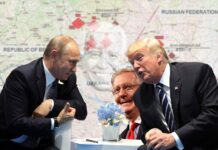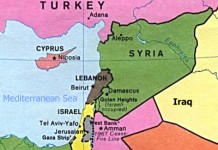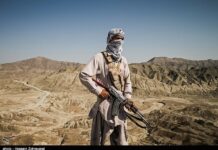Context
 As a broad bloc of Sunni Muslim nations lines up against a growing Shiite uprising in the Middle East, nuclear-armed and Sunni-majority Pakistan appears to be positioning itself to play a key role. According to unconfirmed media reports, Pakistan has reserved two of its army divisions for deployment in Saudi Arabia in case of crisis there. This follows a trip by Prince Bandar, secretary general of Saudi Arabia’s National Security Council, to Pakistan. Previously, Pakistani Fauji Foundation, a military entity, arranged the recruitment of more than1,000 ex-military personnel to join the Bahrain National Guard. The tiny Persian Gulf nation with a majority Shiite population but a Sunni ruling elite is trying to suppress Shiite uprising with the assistance of Saudi armed forces.
As a broad bloc of Sunni Muslim nations lines up against a growing Shiite uprising in the Middle East, nuclear-armed and Sunni-majority Pakistan appears to be positioning itself to play a key role. According to unconfirmed media reports, Pakistan has reserved two of its army divisions for deployment in Saudi Arabia in case of crisis there. This follows a trip by Prince Bandar, secretary general of Saudi Arabia’s National Security Council, to Pakistan. Previously, Pakistani Fauji Foundation, a military entity, arranged the recruitment of more than1,000 ex-military personnel to join the Bahrain National Guard. The tiny Persian Gulf nation with a majority Shiite population but a Sunni ruling elite is trying to suppress Shiite uprising with the assistance of Saudi armed forces.
Reports today also indicate that Pakistan’s Chief of the General Staff Lt. General Waheed Arshad Chaudhry has met with Jordanian King Abdullah II and other senior military officials in Amman.
PoliTact as previously examined the role Pakistan’s armed forces in conflicts in Middle East, as listed below:
- In 1969, training personnel from Pakistan armed forces helped beat back attack from South Yemen on Sharoora province of Saudi Arabia. South Yemen at the time was under a communist regime, strongly supported by USSR.
- During the Six Day War (1967) and Yom Kippur War (1973), pilots from Pakistan’s air force were involved in helping Jordan, Syria, and Egypt in conflict with Israel. Military advisers and trainers were also helping the armed forces of these countries.
- King Hussein of Jordan used Pakistan’s training mission under Brigadier Zia-ul-Haq to suppress the Palestinian uprising in the 70s.
- More recently, during the Gulf War of 1990, Pakistani forces were deployed along the Saudi-Yemen border, as coalition forces expelling Iraqi forces from Kuwait.
- In 2006, President Musharraf sent a contingent of Army personnel to Lebanon for demining areas bombed by Israel.



